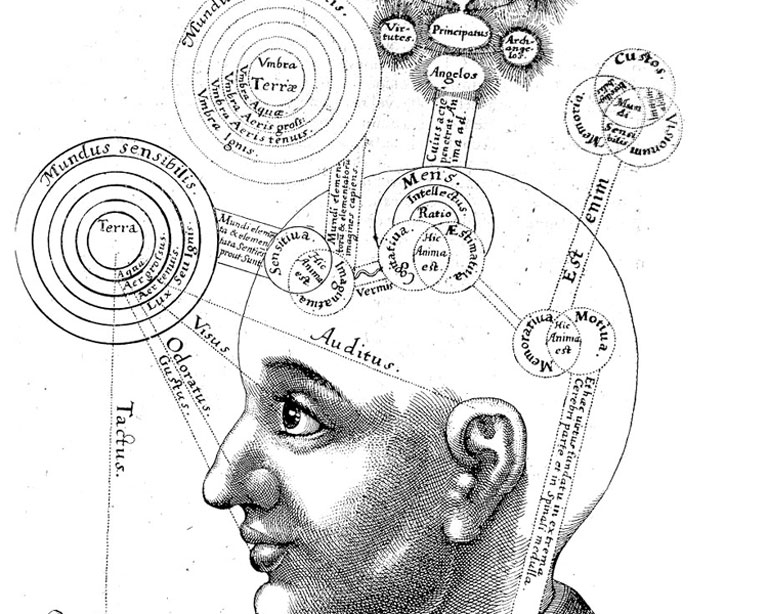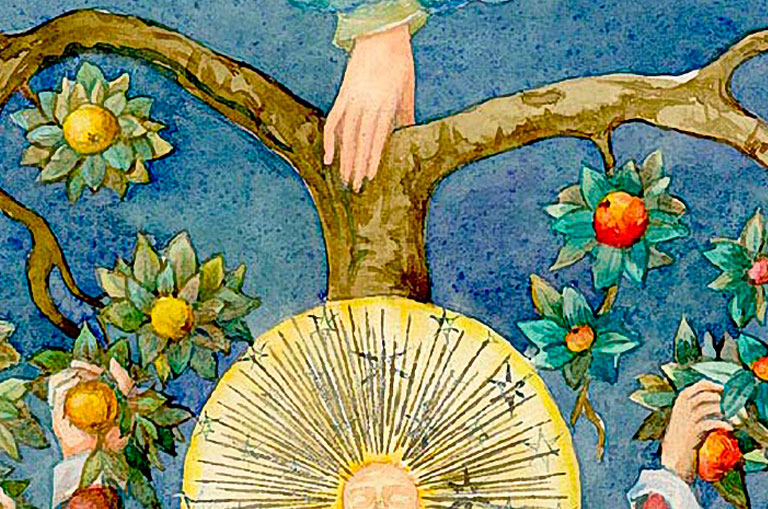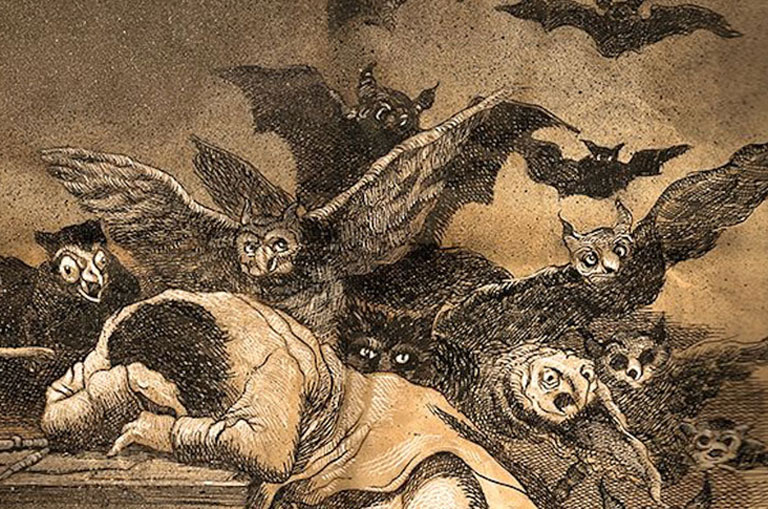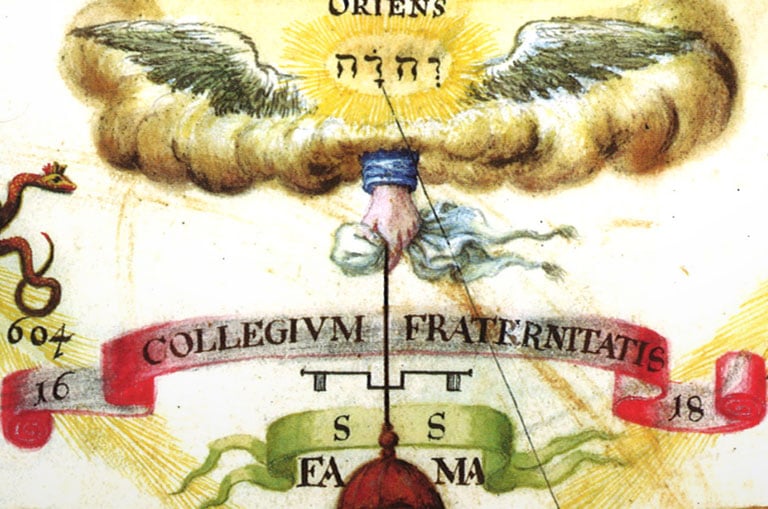Home » Esotericism-2
“Western esotericism” covers a wide spectrum of neglected currents in Western cultural history.
Esotericism cuts through established boundaries of religion, science, art, and philosophy. As an academic field of study, Western esotericism is therefore a highly interdisciplinary enterprise.

As an umbrella term that intends to highlight connections and developments over a long period, from antiquity to the present day, esotericism includes phenomena as varied as Gnosticism, Hermetism, and Neoplatonic Theurgy, Astrology, Alchemy, and Magic, Christian Kabbalah, Rosicrucianism, Christian Theosophy and Illuminism, the currents of modern Occultism, Spiritualism, Traditionalism, the New Age movement, Neopaganism, Ritual Magical groups, and a host of contemporary alternative spiritualities and forms of popular “occulture”.
In short, esotericism cuts through established boundaries of religion, science, art, and philosophy. As an academic field of study, Western esotericism is therefore a highly interdisciplinary enterprise.
At first sight, the only thing esoteric currents may appear to have in common is the experience of having been rejected by mainstream religious and academic institutions in the West. In other words, the study of western esotericism is largely concerned with those traditions and ideas that have lost the battle for hegemony in Western intellectual and cultural history. The polemical debates unleashed by the Protestant Reformation led to a sharp rejection of all theological positions that smacked of “paganism”. This included the “philosophical paganism” of the Hermetica and of neoplatonism.
Moreover, much of what we now study under the rubric of medieval and early modern esotericism – including alchemy, astrology, and natural magic – was excluded from the intellectual canon in the wake of the scientific revolution. As a result, the study of such forms of non-normative religion and natural philosophy was largely left to amateurs, Romantics, nineteenth-century occultists, and their descendants up to the present time. “Western esotericism” as a scholarly category emerged from such processes of polemical rejection but also of apologetic recuperation.
Western esotericism is typically associated with special forms of revelatory knowledge. Esoteric practitioners are found searching for personal and transformative higher knowledge in the form of revelations, spiritual insights, or gnosis.
The attainment of gnosis has been associated with exalted visionary experiences, sometimes resulting in symbolic and mythical representations that have inspired provocative artistic and literary expressions. The quest for gnosis can take many forms, from contemplative practices and intense textual study, to elaborate theurgic rituals, to the sacramental ingestion of hallucinogenic substances in contemporary neoshamanic practices.

Esotericism may also involve practices of secrecy. Esoteric movements have given rise to a wide variety of initiatory societies that seek to conceal their inner doctrines and rituals from the gaze of profane outsiders. Contrary to popular belief, such groups are not usually driven by a desire to form secret social bonds and engage in conspiracies. Rather, in most cases the practice of secrecy tends to be concerned with the pedagogical function of initiations. Esoteric initiation rituals are aimed at inducing life-altering and transformative experiences in the practitioner, and are typically connected to the quest for higher knowledge about God, the self, and the world.

The meanings and practices known as “magic” have shifted many times through history, but all of them remain central to the study of Western esotericism.
In Hellenistic times, magical practice was a site of religious syncretism between early Christianity and Greek, Hebrew, Egyptian, or Chaldaean traditions. Among the neoplatonic philosophers, magic got associated with the practice of “theurgy” and its aspiration of bringing the soul in communion with the divine.
Throughout the medieval period and the Renaissance, traditional magical doctrines and practices were adapted to a Christian environment, surviving despite the pressures of theological polemics.
During the medieval and early modern period, magic was understood in a wide variety of ways. Next to its traditional associations with the agency of demons or angels, “natural magic” was connected with the pursuit of science and the manipulation of nature, while “astral” and “ceremonial” magic catered to philosophical, religious as well as medical needs.
From post-Enlightenment and Romantic perspectives, magic is often associated with “enchanted” worldviews alternative to strict materialism. All these meanings have persisted to the present day through new mutations and adaptation to an ever-changing cultural environment. With the occult revival of the nineteenth century, esoteric groups such as the Hermetic Order of the Golden Dawn created new syntheses of magical practice which have inspired a constant supply of new groups and individuals.
In the twenty-first century, magical practice is still very much alive and well, thriving in online communities and virtual worlds as much as in books and secret societies.
Western esotericism is a highly complex and intellectually challenging area of study. Scholars and students are asked to reconsider categories and narratives that are largely taken for granted in the established disciplines of the humanities.
Studying the history of Western esotericism leads us to question and deconstruct the intellectual and religious canon by focusing on a wide range of figures, philosophies, movements and practices that occupy the contested margins of Western culture. Plunging into the unknown depths of esoteric discourses throughout history provides a unique opportunity to gain new perspectives on our common history and culture.

The Center for History of Hermetic Philosophy and Related Currents (HHP) is part of the Faculty of Humanities at the University of Amsterdam. We are committed to the highest standards of critical academic scholarship, independent of any worldview.
Visiting adress:
Bushuis / Oost-Indisch Huis
Kloveniersburgwal 48
1012 CX Amsterdam
The Netherlands
Postal adress:
Postbus 1622
1000BP Amsterdam
Email: hermetica-fgw@uva.nl
The Center for History of Hermetic Philosophy and Related Currents (HHP) is part of the Faculty of Humanities at the University of Amsterdam. We are committed to the highest standards of critical academic scholarship, independent of any worldview.
Visiting adress:
Bushuis / Oost-Indisch Huis
Kloveniersburgwal 48
1012 CX Amsterdam
The Netherlands
Postal adress:
Postbus 1622
1000BP Amsterdam
Email: hermetica-fgw@uva.nl
The Centre for History of Hermetic Philosophy and Related Currents (HHP) is part of the Faculty of Humanities at the University of Amsterdam. We are committed to the highest standards of critical academic scholarship, independent of any worldview.
Visiting adress:
Bushuis / Oost-Indisch Huis
Kloveniersburgwal 48
1012 CX Amsterdam
The Netherlands
Postal adress:
Postbus 1622
1000BP Amsterdam
Email: hermetica-fgw@uva.nl
© HHP 2022 – by Digital Marketing Agency MIAX